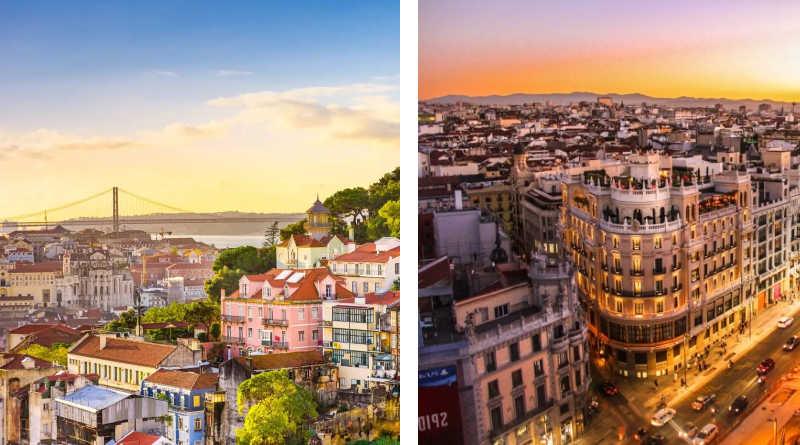

Pela Terra
Sponsor
The Spanish Congress’s recent move to terminate its Golden Visa program by January 2025 has sent shockwaves through the investment migration community. While the looming deadline might tempt investors to rush into Spanish investments, a deeper analysis reveals risks that demand careful consideration.
Meanwhile, Portugal’s thoughtfully reformed Golden Visa program continues to demonstrate why it represents the future of investment migration in Europe. The contrast between these approaches offers important lessons for investors considering their European residency options.
The Spanish Quagmire
Spain’s Golden Visa process contains a fundamental flaw that becomes dangerously amplified in today’s deadline-driven environment: investors must complete their investment before submitting their residency application. This requirement creates a precarious scenario where investors must commit €500,000 or more to Spanish assets with no guarantee of securing residency rights.
Consider this: An investor racing to beat the January 2025 deadline must first identify a property, negotiate terms, complete due diligence, secure financing, and close the transaction – all under intense time pressure. Only then can they submit their Golden Visa application, which still requires thorough vetting by Spanish authorities.
A rejection at this stage would leave the investor holding a Spanish asset but no path to residency. This risk becomes particularly acute as the program winds down and processing times potentially become more uncertain.
A Cascade of Risks
This artificial time pressure creates a dangerous cascade of potential problems. Property valuations become suspect when sellers know buyers are racing against a deadline – a €400,000 property might be marketed at €500,000 simply to meet the minimum investment threshold.
Critical due diligence steps get abbreviated or skipped entirely. Building permits, liens, zoning compliance, and environmental issues might go unchecked until it’s too late. These oversights can lead to costly surprises long after the purchase is complete.
The financial implications are equally concerning. Investors might accept unfavorable mortgage terms from the first available lender rather than shopping around. Important tax structuring opportunities could be missed, leading to unnecessarily high tax burdens or even inadvertent violations.
Even the fundamental aspects of property investment become compromised. Location analysis, market trend research, and demographic studies – all crucial for understanding an investment’s long-term viability – often get abbreviated or skipped entirely.
Portugal’s Renaissance
At the same time, Portugal has strategically reformed its program to align with both national economic objectives and investor interests.
By shifting focus from pure real estate to productive investments, Portugal has created a program that stands as a beacon of sustainability in the investment migration landscape. This transformation demonstrates Portugal’s commitment to long-term economic development.
The key to Portugal’s success lies in its fundamental understanding of what creates lasting value. While other countries chase short-term gains, Portugal has built a program that serves as a bridge between international capital and sectors critical to the nation’s future.
This approach creates a virtuous cycle where investor success aligns perfectly with national development goals. The program’s focus on productive sectors ensures sustainable growth for both investors and the country.
Agricultural investment, particularly through vehicles like Pela Terra’s fund, exemplifies this enlightened approach. These investments tap into one of humanity’s most enduring assets – productive agricultural land with centuries of proven value.
Through the Alqueva reservoir’s remarkable water security, capable of sustaining operations through four years of drought, these investments offer a level of stability that feels almost unprecedented in today’s volatile world. This water security provides a fundamental backbone to agricultural investments in the region.
The numbers tell a story of remarkable consistency. While global markets have swung wildly through crises ranging from pandemics to geopolitical conflicts, Portuguese agricultural assets have maintained their steady appreciation of 2-3% annually.
This isn’t just stability – it’s the kind of reliability that allows investors to sleep soundly at night. The consistent performance through various market cycles demonstrates the resilience of these investments.
The Portuguese Advantage
Portugal’s program respects the investor’s need for careful consideration and due diligence. Unlike the rushed decisions forced by closing programs, Portugal’s framework allows investors to make thoughtful, strategic choices about their future.
Through regulated funds that provide professional management and oversight, investors can properly understand and optimize their tax implications. This measured approach allows time to develop comprehensive entry and exit strategies.
Investors can build meaningful relationships with local service providers and professionals. They have time to consider how the investment fits within their broader portfolio strategy, ensuring alignment with their overall financial goals.
The Pela Terra Model
Within this thoughtfully structured landscape, Pela Terra’s agricultural fund stands as a prime example of what modern investment migration can achieve. The fund combines several elements that appeal to sophisticated investors seeking both stability and returns.
A target of 5% annual cash distributions provides meaningful ongoing returns, while investment in productive agricultural land offers inherent value protection. Professional management implements regenerative farming practices that enhance long-term sustainability.
The Alqueva reservoir access ensures crucial water security, while environmental benefits through carbon sequestration align with global sustainability goals. Clear reporting and transparent management structures provide investors with the peace of mind they deserve.
Moreover, the fund’s focus on regenerative agriculture speaks to a growing awareness among investors that long-term returns must be built on sustainable practices. This isn’t just about preserving value – it’s about creating it through improved soil health, enhanced biodiversity, and increased agricultural productivity.
The Investment Thesis
What makes Portugal’s approach particularly compelling is how it transforms the traditional Golden Visa investment from a pure immigration play into a genuine investment opportunity. Investors aren’t simply buying their way into European residency.
They’re participating in the growth of crucial economic sectors while gaining that residency as a valuable additional benefit. This dual-benefit structure creates a powerful alignment of interests between investors and the nation.
When investors succeed, Portugal succeeds. When Portuguese agriculture thrives, investors thrive. This symbiotic relationship forms the foundation of a program designed to weather economic cycles and regulatory scrutiny.
A Clear, Calm, and Calculated Path Forward
The contrast between Spain’s closing program and Portugal’s sustainable approach couldn’t be clearer. While Spain’s deadline creates artificial pressure that could lead to costly mistakes, Portugal offers time for proper planning and strategic decision-making.
Through careful due diligence and professional management, investors can ensure their European residency journey aligns with sound investment principles. This measured approach provides the foundation for long-term success.
For investors seeking European residency through investment, Portugal’s Golden Visa program, particularly through Pela Terra’s agricultural fund, represents a lower-risk pathway and an attractive long-term investment opportunity that can weather market cycles and regulatory scrutiny.
If you’d like to learn more and speak to one of the experts at Pela Terra, you can learn more & book a call via their website.
Alternatively, you can email them here (nick@pelaterra.com) or drop them a message on WhatsApp using +44 7768 929321.
